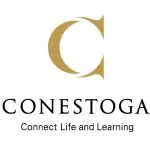Ready to learn more?
Next Cohort: Sep 2-Sep 2
By submitting your email address, you acknowledge and agree to CourseCompare.ca's Terms of Service and Privacy Policy.
Duration
2 years
Tuition
$5,441
Commitment
Full-Time
Delivery
Classroom
Credential
Diploma
Year Founded
1967
Scholarships
yes
In this program, students learn to facilitate the development of children from birth to 12 years while encouraging their feelings of self-worth and social-emotional resiliency. Students design and implement play-based experiences, focusing on children’s interests through indoor and outdoor play opportunities. Students learn the importance of being responsive caregivers while respecting diversity, identity and the rights of children and families. Partnerships with families, other professionals, and community programs form the foundation of working in the field of early learning and care. Field placements provide students with the opportunity to practice the knowledge and skills as they engage with children and adults. Students are offered a unique balance between theoretical knowledge and practical experience.
What You’ll Learn
- Create learning contexts to enable, build and maintain caring, responsive relationships in partnerships with children, families and communities that value and respect social, cultural and linguistic diversity including Indigenous peoples’ worldviews and Francophone identity.
- Co-create, facilitate and reflect upon inquiry and play-based early years and child care programs and pedagogical approaches to support children’s learning, holistic development and well-being following children’s capabilities, interests, ideas and experiences.
- Co-design and maintain inclusive early learning environments to value and support equitable, accessible and meaningful learning opportunities for all children, their families and communities in a range of early years and child care settings.
- Collaborate with children, families, colleagues, agencies and community partners to create, maintain, evaluate and promote safe and healthy early learning environments to support independence, reasonable risk-taking and healthy development and well-being.
- Use observation strategies to identify children’s strengths and challenges and to ascertain when children and families might benefit from additional support or community resources.
- Use professional communication in interactions with children, families, colleagues, employers, the regulatory body, government authorities and children’s service agencies to meet legal and ethical standards of the early years sector.
Ready to get started?
Next Cohort: Sep 2-Sep 2
By submitting your email address, you acknowledge and agree to CourseCompare.ca's Terms of Service and Privacy Policy.
Student Reviews (4)
ECE program helped me find work
Tania Walker
Barrie • February 13, 2024Graduated From
Early Childhood Education
Overall:
Instructors:
Curriculum:
Job Assistance:
Great school! The best school I've attended. Awesome program choices and great professors. Very friendly staff! Completed the ECE program and found work before I even graduated.
Great school! The best school I've attended. Awesome program choices and great professors. Very friendly staff! Completed the ECE program and found work before I even graduated.
Small classroom size provided hands on experience
Brooke Savich
February 13, 2024Graduated From
not provided
Overall:
Instructors:
Curriculum:
Job Assistance:
I love Georgian College. Having attended university previous to this I can say that the small classroom size has allowed me to have an amazing relationship with my teachers, more opportunity to ask questions, and much more hands on experience. It is ve...
I love Georgian College. Having attended university previous to this I can say that the small classroom size has allowed me to have an amazing relationship with my teachers, more opportunity to ask questions, and much more hands on experience. It is very organized, not only the staff but also the students are so friendly and welcoming every day. The school is all connected and easy to navigate. Nothing but great things to say! As for the costs of going to college/university, you're going to have to pay basically the same (college/university respectively), and Georgian gives you the best quality available for what it costs. The gym is also nice with lots of equipment. :)


